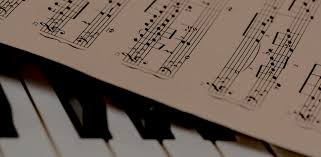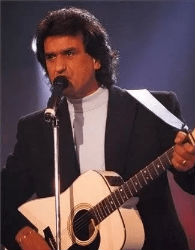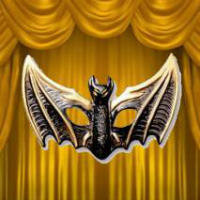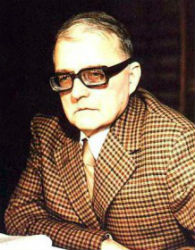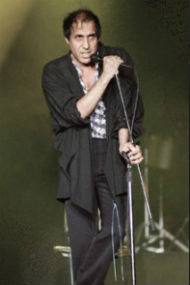“Aquarium”
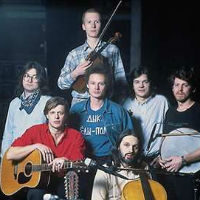 Sometimes, in order to say in concise and succinct phrases about a particular group, its place in the musical horizon, and its role in the life of fans, you need to try to summarize all the many years of work of the team. Or you can just give the group members the opportunity to say their own creation. Boris Grebenshchikov called the Aquarium group a shining beast that brings people something that they lacked, which they themselves did not know about. In this one phrase, the whole secret of the popularity of “Aquarium” is revealed.
Sometimes, in order to say in concise and succinct phrases about a particular group, its place in the musical horizon, and its role in the life of fans, you need to try to summarize all the many years of work of the team. Or you can just give the group members the opportunity to say their own creation. Boris Grebenshchikov called the Aquarium group a shining beast that brings people something that they lacked, which they themselves did not know about. In this one phrase, the whole secret of the popularity of “Aquarium” is revealed.
Looking for like-minded people
The chronicle of the Aquarium group opens in 1972. Since then, dozens of famous musicians from different countries have visited the band – Vsevolod Gakkel, Sergey Kurekhin, Oleg Sakmarov, Boris Rubekin, Alexander Lyapin, Dzhivan Gasparyan and Igor Butman. The history of the group can be divided into several stages. During these periods, not only the composition of the Aquarium participants changed, but also the corporate sound.
The group appeared at the behest of two young people who studied at the same St. Petersburg school. These were Boris Grebenshchikov and Anatoly Gunitsky, nicknamed George. Initially, the group was conceived by the group Aquarium as a poetic and musical. It’s definitely impossible to say how its name came about, since Anatoly claims that it appeared by analogy with one of the city’s beer bars. But Boris is inclined to the version that the word “aquarium” was approved as a name after three-day painful search of many phrases.
Be that as it may, “Aquarium” got its name and plunged into the musical flow. True, at first the group had to confine itself only to rehearsals in connection with the instability of the composition. The musicians first appeared, then left, some of them became iconic figures in Russian rock space. Among them was Edmund Shklyarsky, the current leader of the rock band Picnic. At the same time, Mikhail Fainshtein-Vasiliev (nicknamed Fan), one of the main participants in the early gold composition of the Aquarium, joined the band, and a year later keyboardist and flutist Andrei Romanov (Dyusha) appeared on the team.
First gold line-up
Aquarium recorded its first magneto-album in 1974 using ordinary household appliances. But the official release of “The Temptation of the Holy Aquarium” (such was the group Aquarium its name) waited only in 1997. It included other early work of the team. In 1975 there was another recording (“Minuet to the Farmer”), but this phonogram, unfortunately, was irretrievably lost.
Soon, Anatoly Gunitsky leaves the group, however, he maintained friendly relations with other musicians who, after such a turn, tried for some time to realize themselves in the amateur theater of the absurd. Boris Grebenshchikov very quickly became disillusioned with the idea of combining music, poetry and theater, so he completely concentrated on musical activity. And after the cellist Vsevolod Gakkel came to the Aquarium, the golden composition of the group formed: BG, Dyusha, Seva and Fan.
Provocateurs
The intense concert activity of the musicians of the Aquarium began in 1976. One of the fateful was a trip to the festival in Tallinn. It was there, in the usual city trolleybus, that Boris Grebenshchikov met Andrei Makarevich. Since that time, the participants in the Aquarium and the Time Machine have been “collectively” friends. Around the same period, Grebenshchikov met the leader of the Aquarium group of the Zoo Mikhail (Mike) Naumenko. Together they recorded the album “All Brothers – Sisters.”
The apotheosis of the touring activities of Aquarium was the performance at the famous rock festival in Tbilisi in 1980. In an interview with one of the correspondents, Boris Grebenshchikov said that the value of Aquarium’s music lies in the fact that it does not comply with standards and crawls out of all the templates. Then at the concert, the musicians behaved frankly shocking by Soviet standards. As a result, the jury openly accused the team of promoting homosexuality. After such a speech, Grebenshchikov was expelled from the Komsomol and expelled from work. Although Boris himself believes that these circumstances only helped him in self-realization.
For two years, Boris Grebenshchikov has been touring with the BG band he created and is recording the “Russian Album” under this brand. Some time later, the musician announces the revival of “Aquarium”. The new composition of the BG team included Alexander Titov, Alexey Zubarev, Oleg Sakmarov, the Aquarium group, Andrey Vikharev, Sergey Schurakov and Alexey Ratsen. The first joint work of the updated Aquarium was the vinyl record “Ramses IV Favorite Songs”. She impressed the fans with psychedelic sounds, and music critics dubbed the new stage of the group’s work “the Russian period of the BG”. After several new discs, Grebenshchikov became interested in experiments that were reflected in the Russian-Abyssinian Orchestra project. Before the Aquarium had time to enjoy the resumption of studio and concert activities, after celebrating the 25th anniversary of the group, Boris Grebenshchikov again announced the dissolution of the musical team.
